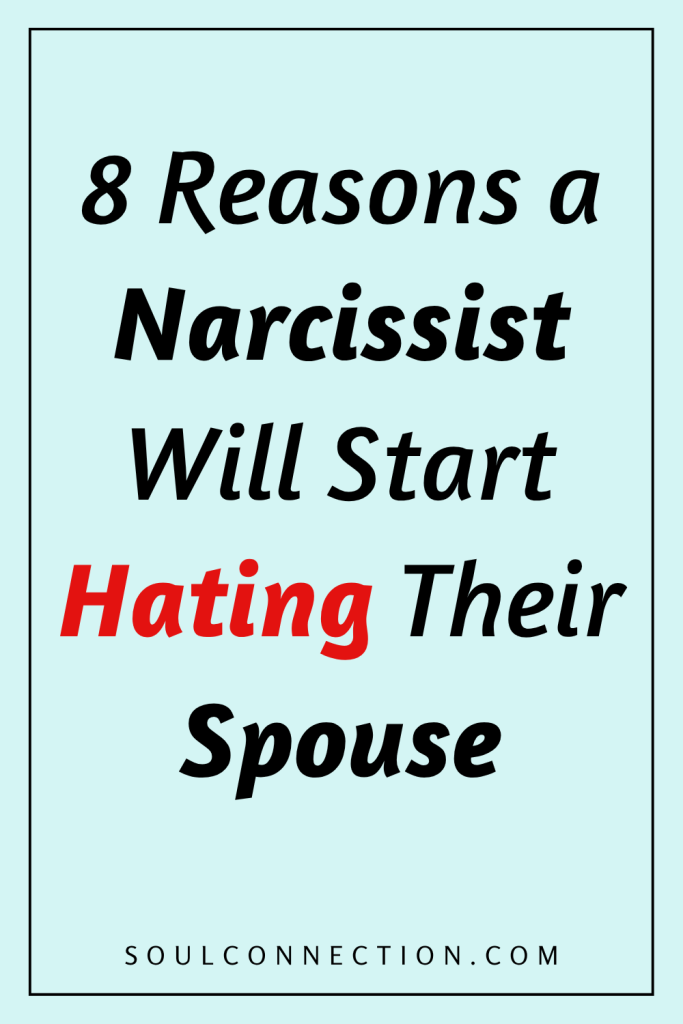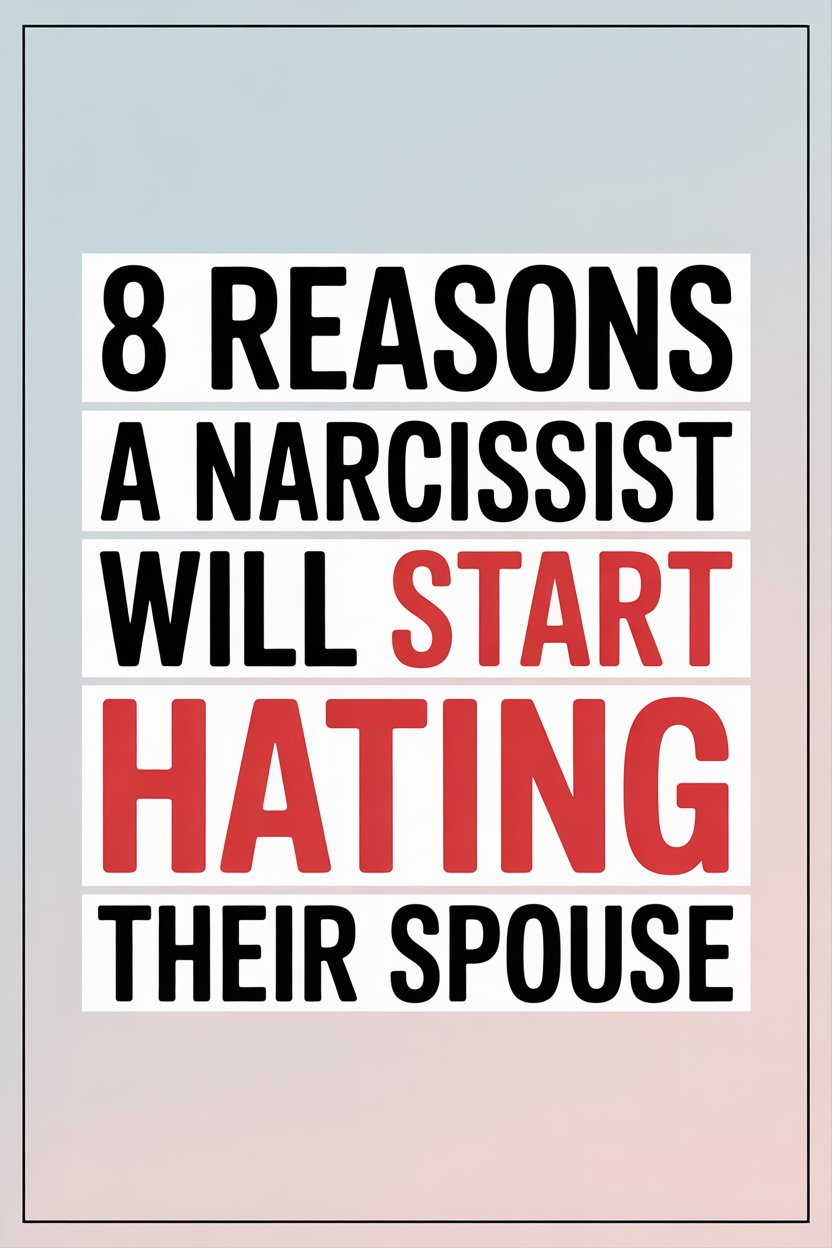If you’ve ever felt like loving a narcissist is a lot like cuddling a porcupine—adorable from a safe distance, but a bit painful up close—welcome to the club. Relationships with narcissists are a masterclass in emotional acrobatics.
But even the most self-obsessed peacocks sometimes turn on their partners with a sudden, icy shift from love-bombing to loathing. Why do narcissists start to hate their spouses?
Pull up a chair, clutch your mug, and let’s get into the messy reasons.
1. The Spouse Stops Reflecting Their Glory
Mirror, mirror on the wall—if you’re married to a narcissist, you ARE the mirror. Your job: reflect their dazzling perfection at all times.
When you finally get tired of fawning over their every humblebrag and start acting like your own person (scandalous, I know), a narcissist sees this as a personal affront.
Their need for constant admiration isn’t being met, so the person who once gave them those warm, fuzzy feelings becomes the enemy. No applause? No love.
2. Criticism, Real or Imagined, Isn’t Tolerated
Narcissists pride themselves on their legendary sensitivity—by which I mean, they are about as thick-skinned as a wet tissue. Even the mildest “Hey, could you maybe not eat cereal with your mouth open?” feels like a character assassination.
Whether you actually criticized them or they simply decided you looked skeptical during their third retelling of the office anecdote, they experience this as a threat. Hate, in their world, is just another word for “You bruised my ego.”
3. Loss of Control Over Their Spouse
Control is the name of the game. Narcissists excel at pulling the strings, but the second their spouse develops a backbone (or, heaven forbid, an opinion), the wheels come off the wagon.
Independent decisions? Close friendships they can’t micro-manage? This is a betrayal of the natural order—where the narcissist is sun, moon, and stars.
Losing influence means losing their carefully crafted reality, and suddenly, dislike simmers into resentment.
4. The Spouse’s Success Triggers Envy
Narcissists want their partners to shine—just not brighter than they do. Promotions, personal growth, or even a killer new haircut can set off a jealousy alarm. Instead of celebrating their spouse’s wins, narcissists feel threatened.
If you’re getting attention that isn’t about them, brace yourself for the emotional cold front. Hate, in this context, is just envy dressed up in fancier clothes.
5. Their Manipulation Tactics Stop Working
Gaslighting, guilt trips, silent treatments—these are the greatest hits in the narcissist’s playlist.
When a spouse starts recognizing the patterns (maybe after binge-watching a few too many psychology podcasts), the magic tricks lose their sparkle. Once manipulation falls flat, frustration peaks.
The narcissist’s go-to moves aren’t working, so the person who “ruined the fun” (i.e., stopped playing along) becomes the target of their contempt.
6. Emotional Needs Are No Longer Met
Narcissists have the emotional appetite of a teenager who just discovered pizza delivery. They want validation, attention, and endless supplies of reassurance.
Marriage, for them, isn’t about partnership—it’s about having a personal cheerleader on retainer. When a spouse hits emotional burnout, the narcissist takes this as a hostile act.
Instead of considering their own insatiable needs, they blame their partner for “not caring enough.” Cue the cold shoulder.
7. The Spouse Sees Through Their Facade
Everyone wears a mask now and then, but narcissists practically superglue theirs on. When a spouse begins to see through the grand façade—the exaggerations, the self-pity, the constant blame-shifting—it’s panic stations.
Being exposed is a narcissist’s worst nightmare, and hate becomes a convenient way to distance themselves from the person who knows too much. If you’ve ever received the “How dare you know who I really am” stare, you get it.
8. Boredom Sets In
At heart, many narcissists crave novelty and excitement. Once the emotional fireworks of the honeymoon phase die down, they can start to see their spouse as…well, just another person, not the adoring audience they signed up for.
The realization that their partner has flaws—or simply isn’t obsessed with them—triggers restlessness. Boredom in a narcissist’s mind is somehow your fault, and resentment soon follows. It’s not them, it’s (always) you.
When Love Feels Conditional
Living with a narcissist is a crash course in shifting goalposts. One day, you’re the apple of their eye; the next, you’re the worm in their apple.
If any of these reasons sound uncomfortably familiar, it doesn’t mean you’re broken—it means you’re noticing the game.
The good news? Recognizing these patterns is the first step toward reclaiming your sanity (and maybe even your self-esteem).
Remember, a healthy relationship isn’t built on a pedestal, but on equal ground—preferably with both people allowed to shine.
If your partner’s love only lasts as long as the applause, it might be time to star in your own show for a while.
Go on, you’ve earned the spotlight.


